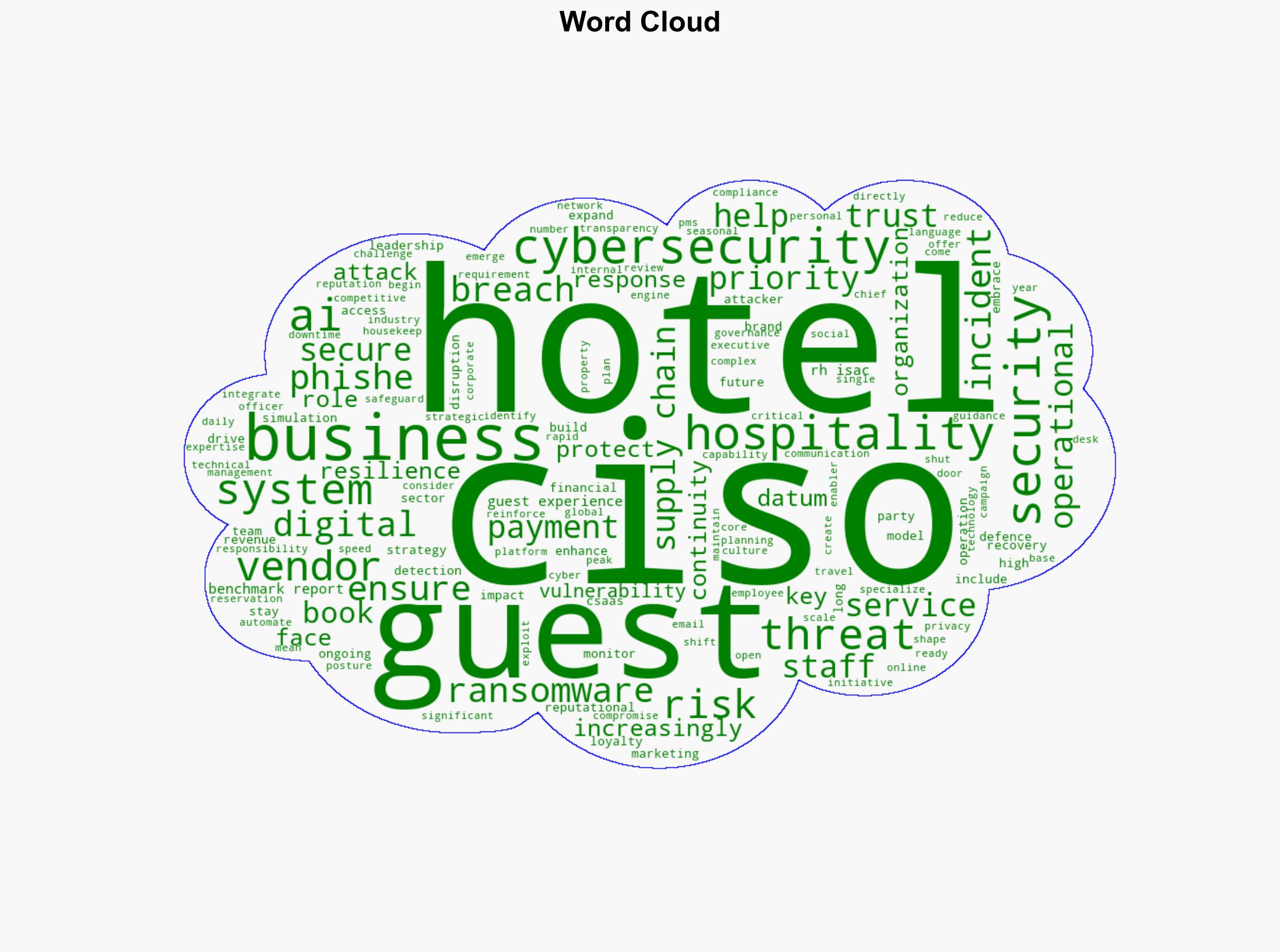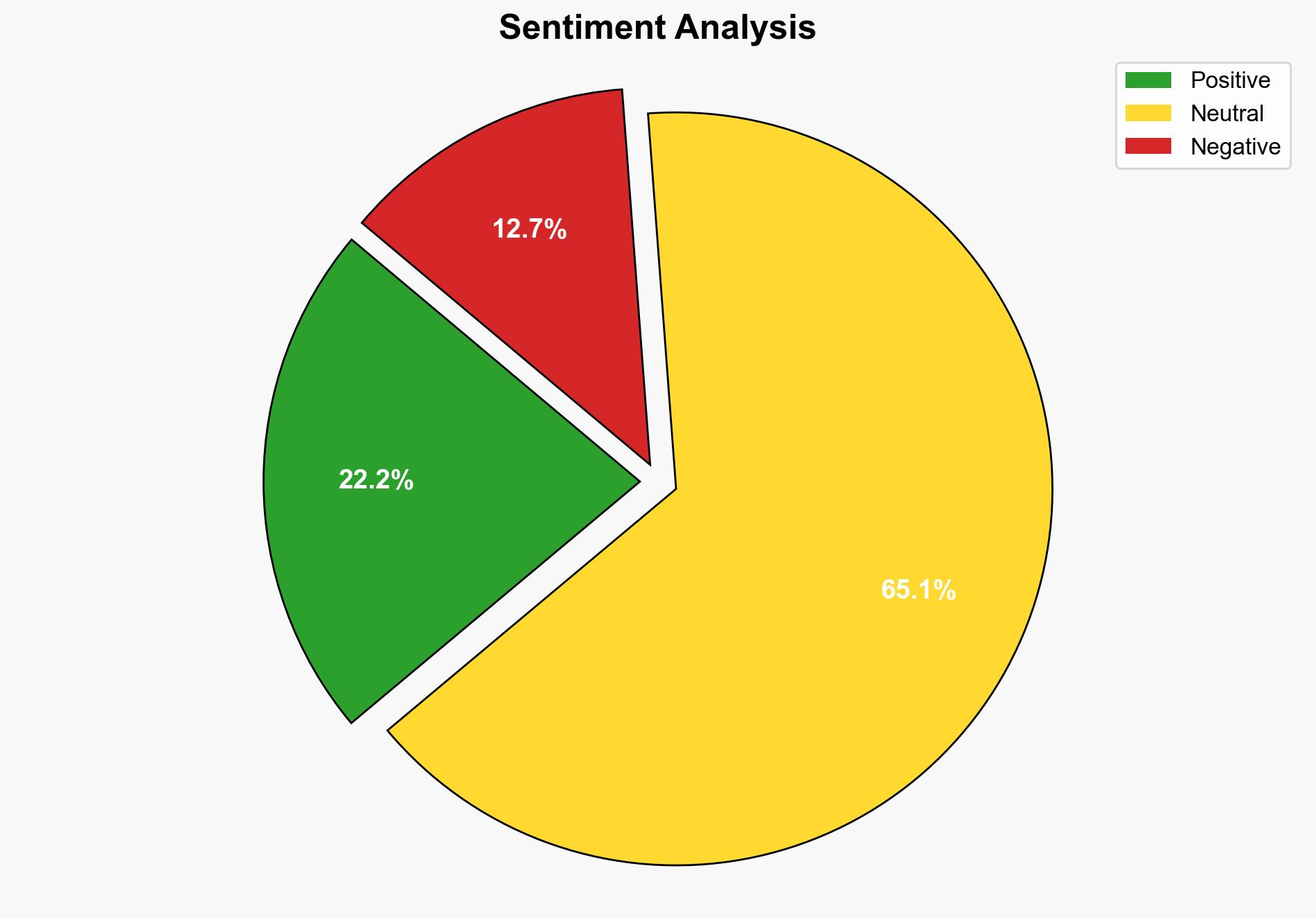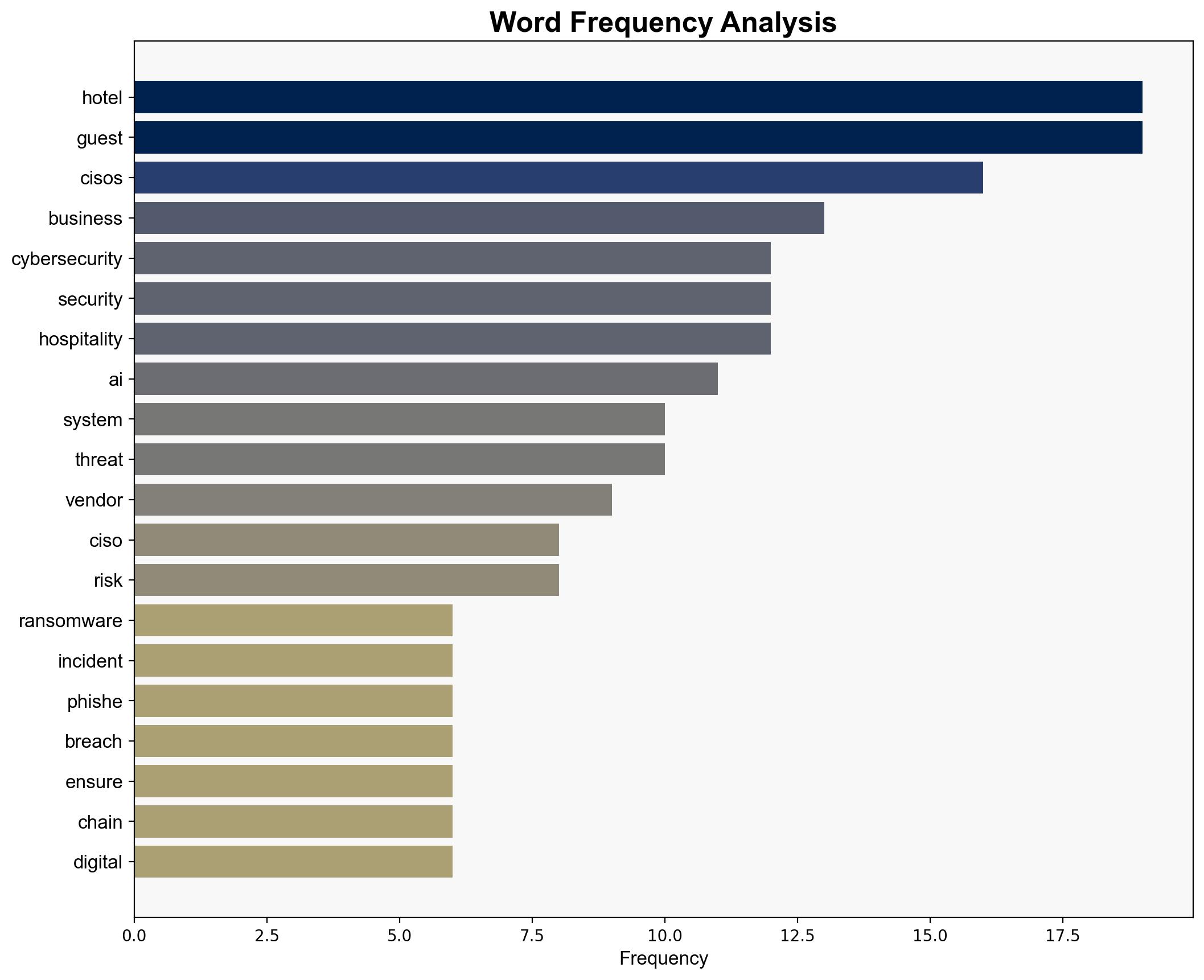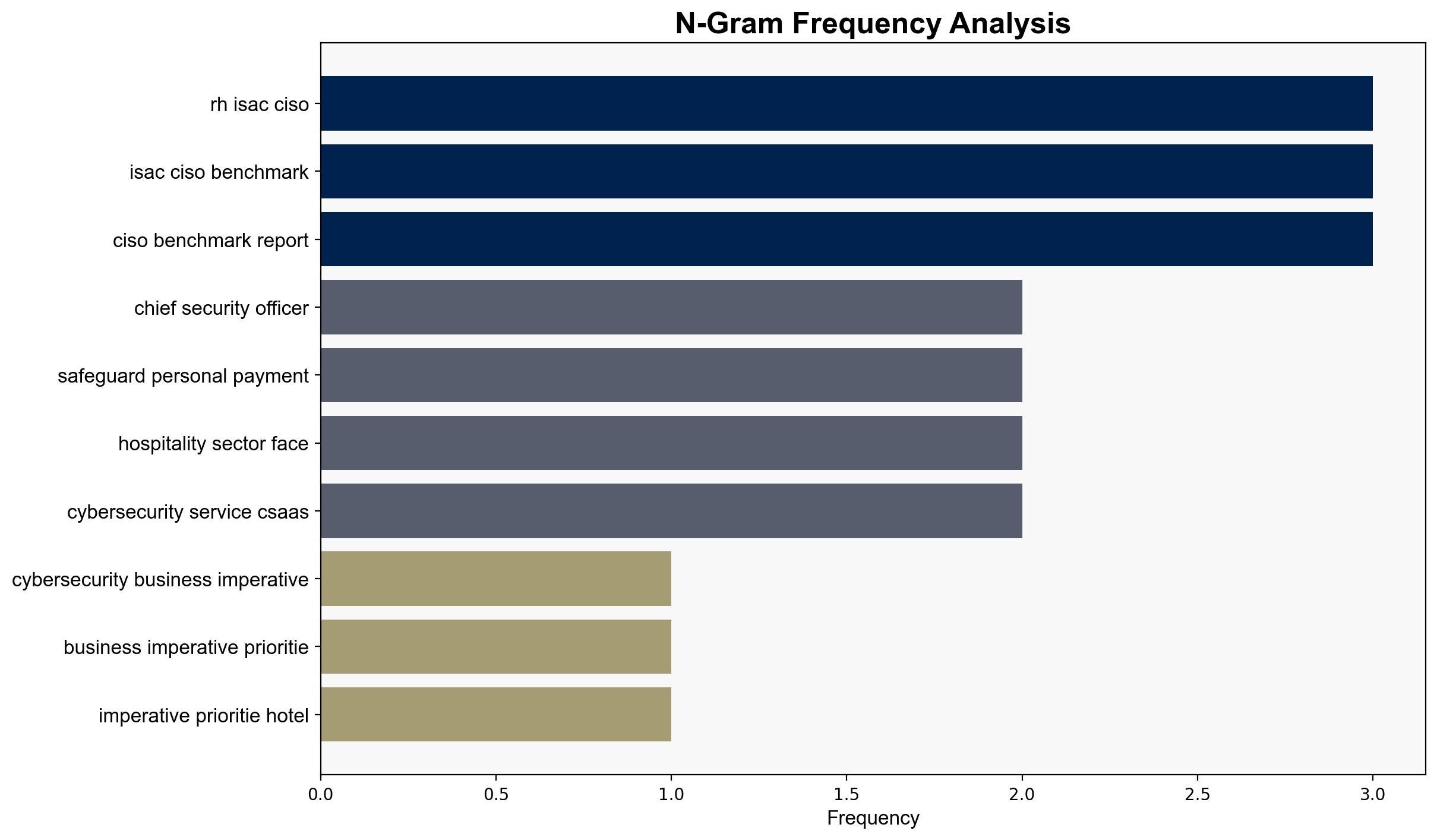Cybersecurity as a Business Imperative – Hospitality Net
Published on: 2025-11-10
Intelligence Report: Cybersecurity as a Business Imperative – Hospitality Net
1. BLUF (Bottom Line Up Front)
The hospitality sector increasingly views cybersecurity as critical to operational continuity and brand reputation. The most supported hypothesis is that cybersecurity will become a central pillar of strategic planning in the hospitality industry, driven by the need to protect guest data and ensure business continuity. Confidence level: High. Recommended action: Enhance cross-departmental collaboration and integrate cybersecurity into strategic growth plans.
2. Competing Hypotheses
1. **Hypothesis A**: Cybersecurity will become a central strategic focus in the hospitality industry, driven by the need to protect guest data and ensure business continuity.
2. **Hypothesis B**: Cybersecurity will remain a secondary concern, primarily addressed through compliance and technical measures, without significant integration into strategic business planning.
Using the Analysis of Competing Hypotheses (ACH) method, Hypothesis A is better supported due to the increasing direct reporting of CISOs to senior executives and the recognition of cybersecurity as integral to operational resilience and guest trust.
3. Key Assumptions and Red Flags
– **Assumptions**: It is assumed that the hospitality industry will continue to face escalating cyber threats, necessitating a strategic focus on cybersecurity.
– **Red Flags**: Potential over-reliance on compliance-driven approaches without true integration into business strategy. Lack of data on smaller hotel chains may skew understanding towards larger entities.
– **Blind Spots**: The impact of emerging technologies, such as AI-driven attacks, may not be fully accounted for in current strategies.
4. Implications and Strategic Risks
The hospitality sector faces significant risks from ransomware and phishing attacks, which can disrupt operations and damage reputation. A failure to integrate cybersecurity into strategic planning could lead to severe financial losses and eroded guest trust. The sector’s reliance on third-party vendors increases vulnerability to supply chain attacks, potentially escalating into broader systemic risks.
5. Recommendations and Outlook
- Enhance cross-departmental collaboration between IT, finance, and marketing to ensure a unified response to cybersecurity threats.
- Invest in advanced threat detection and response capabilities, particularly to counter AI-driven attacks.
- Scenario-based projections:
- Best Case: Proactive cybersecurity measures lead to enhanced guest trust and operational resilience.
- Worst Case: Major cyber incidents result in significant financial and reputational damage.
- Most Likely: Gradual integration of cybersecurity into strategic planning, with ongoing challenges from evolving threats.
6. Key Individuals and Entities
The report does not mention specific individuals by name. Key entities include hotel chains, cybersecurity firms, and third-party vendors involved in the hospitality sector.
7. Thematic Tags
national security threats, cybersecurity, counter-terrorism, regional focus





